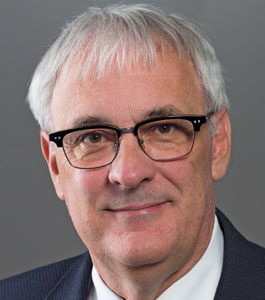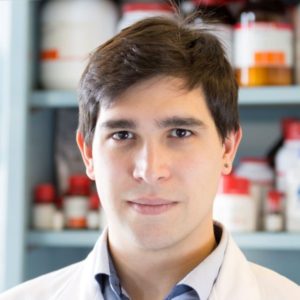CRAFT combines state-of-the-art facilities with some of Canada’s top experts in microfluidics, enriching Canadian talent and developing promising health technologies to serve the world.
Here’s what people are saying about CRAFT and its new Device Foundry.

Claudia dos Santos
Robert and Dorothy Pitts Chair in Acute Care and Emergency Medicine
Associate Professor, University of Toronto
Clinician-Scientist, St-Michael’s Hospital
“My team is working with CRAFT scientists at the National Research Council Canada and the University of Toronto to develop a new clinical tool — that will be used at the bedside, in the emergency department and even on the field — to quickly identify COVID patients at highest risk of severe respiratory illness. This tool will enable me and other health care professionals to allocate precious hospital resources — including mechanical ventilators — to the patients who need them most. Our work has the potential to save the lives, improve patient outcomes and change the standard of care.”

Christopher Yip
Dean, Faculty of Applied Science & Engineering, University of Toronto
“The opening of the CRAFT Device Foundry represents a significant milestone in the University’s partnership with the National Research Council of Canada. This state-of-the-art facility and strategic collaboration will provide our students, researchers, and indeed the global microfluidics community with access to cutting-edge equipment and tremendous learning opportunities from some of Canada’s top experts in the field.”

Roman Szumski
VP, Life Sciences, National Research Council Canada
“The opening of the CRAFT Device Foundry facility is an exciting milestone achievement. The Centre for Research and Applications in Fluidic Technologies (CRAFT) was the very first Collaboration Centre announced by the National Research Council Canada (NRC) in 2017 and brings together University of Toronto researchers and NRC’s Medical Devices Research Centre scientists in Boucherville, Quebec, working shoulder-to-shoulder to help advance microfluidic technologies from lab-scale prototypes to commercially viable products. I look forward to seeing CRAFT continue to grow and enable the discovery of innovative technologies, attract and retain skills and talent, and ensure that a vibrant microfluidics community continues to thrive in Canada.”

Daniel Brassard
Team Lead and Senior Research Officer, Medical Devices Research Centre, National Research Council Canada
“Microfluidics has the potential to revolutionize modern medicine. CRAFT, which is a unique hub of creativity and innovation, is at the heart of this revolution. By working side-by-side with leaders from the University of Toronto, we bring a diversity of expertise and the foundational traits that will empower stronger impact from our collaborative science projects and prepare the microfluidics leaders of tomorrow. We are pushing the limits of science every day to address today’s problems by developing new solutions based on portable, point-of-care (POC) technologies.”

Michael Mohan
PhD candidate, Department of Mechanical & Industrial Engineering, University of Toronto
“I dream of working with a team of brilliant researchers at the leading edge of health technology. After graduate school, I’m aiming to pursue a career where I would design and build the latest and greatest medical devices. My experiences using state-of-the-art equipment in the CRAFT facilities and working with some of Canada’s top experts at the University of Toronto will help me achieve this goal.”

Lakshmi Krishnan
Director General, Human Health Therapeutics, National Research Council Canada
“Congratulations to the CRAFT team on the opening of their new Device Foundry facility. I have seen firsthand how CRAFT brings together leading microfluidics researchers from both the University of Toronto and the NRC to advance health technologies innovation. This collaboration will continue to help accelerate the applications of microfluidics including diagnostics, biofabrication and organ-on-a-chip technologies, bringing value and impact for the Canadian health care system.”

Alexandros Sklavounos
PhD candidate, Department of Chemistry, University of Toronto
“For the past several years, the Wheeler lab has been developing a microfluidics-powered diagnostic device for trauma patients that could process blood samples and produce lab results in minutes, at the patient’s bedside.
With the new Device Foundry we will be able to fabricate hundreds of these devices at a fraction of the cost and time. These devices will be sent to hospitals where they will be thoroughly evaluated on samples from real patients; this is a crucial step before any diagnostic test can be widely deployed in health care.”

Alisa Ugodnikov
PhD Candidate, Institute of Biomedical Engineering, University of Toronto
“For my PhD dissertation, I’m working with Dr. Craig Simmons, an international leader in his field, to develop a new technology to non-invasively monitor changes in endothelial barrier integrity in organ-on-a-chip models. Our technology can be used to better understand and predict important changes in physiological barriers—such as the blood-brain barrier— that occur in disease states, as well as in response to medications. The aim is to create a tool that can improve the drug discovery process. Our work very much depends on my ability to access state-of-the-art equipment, facilities and technical expertise available through CRAFT.”

Robert DiRaddo
Director General, Medical Devices Research Centre, National Research Council Canada
“The Centre for Research and Applications in Fluidic Technologies (CRAFT) aspires to make a significant impact in delivering innovative, ‘made-in-Canada’ technologies that are integrated into our health care system and poised to make significant positive impacts on the health of Canadians. Together, the University of Toronto and the National Research Council Canada will help grow and diversify our country’s medical device sector and contribute to strengthening the entire value chain of microfluidic manufacturing so that Canada can become a world-leader in translating microfluidics-enabled solutions.”

Ted Sargent
VP, Research and Innovation, and Strategic Initiatives, University of Toronto
“CRAFT’s Device Foundry will advance the innovative research led by U of T’s micro- and nanodevice community, which includes over 60 research labs across diverse disciplines, such as medicine, engineering, chemistry and biology. Importantly, this facility will help attract companies and hospitals to U of T’s campuses to partner with our researchers to solve some of the biggest health care challenges that we face today.”


